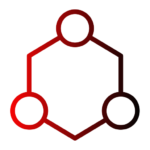Security Services
Network security plays a vital role in today's interconnected world. A compromised network can result in devastating consequences, including data breaches, financial losses, reputation damage, and legal liabilities. Cyber threats such as malware, ransomware, phishing, and social engineering attacks are becoming more sophisticated and prevalent, making network security even more critical.
Effective network security measures, including firewalls, intrusion detection and prevention systems, encryption, and access controls, help organizations prevent unauthorized access and malicious activities. Regular vulnerability assessments and penetration testing can identify potential weaknesses and enable timely remediation. Ongoing monitoring and incident response procedures are essential for detecting and responding to security incidents quickly. Investing in robust network security measures is an essential step towards protecting the integrity, confidentiality, and availability of sensitive information and maintaining the trust of users and stakeholders.
Next-Generation Firewalls
NGFWs are becoming increasingly important in today's cyber landscape, where cyber attacks are growing in frequency, sophistication, and complexity. As more organizations adopt cloud-based and mobile technologies, their networks are becoming more distributed and complex, making it harder to secure them using traditional firewalls.
NGFWs can help organizations better manage and secure their networks by providing real-time visibility into network traffic, preventing unauthorized access and data exfiltration, and providing granular control over application usage. By deploying NGFWs, organizations can better protect themselves from cyber attacks and comply with regulatory requirements.


Cloud Edge Security
Cloud edge security is vital for protecting cloud environments from cyber threats. As more organizations adopt cloud technologies, cloud edge security helps ensure that these environments remain secure and compliant with regulatory requirements. Cloud edge security includes firewall protection, intrusion detection and prevention, anti-malware protection, and content filtering. By implementing cloud edge security, organizations can better manage their cloud network traffic, prevent unauthorized access and data exfiltration, and provide real-time visibility into cloud network activity.
Secure Access Service Edge "SASE/SSE"
Secure Access Service Edge (SASE) is a network architecture that combines network security with wide-area networking (WAN) capabilities to provide a comprehensive, cloud-based security solution. SASE enables organizations to secure their networks and protect their data from cyber threats while allowing employees to securely access cloud-based applications from anywhere in the world. By combining network security and WAN capabilities in a single solution, SASE can reduce costs, simplify network management, and provide better visibility and control over network traffic.


IT / OT Segmentation
Segmentation of IT (Information Technology) and OT (Operational Technology) networks is critical for securing critical infrastructure systems. IT systems are designed to support business operations, while OT systems control physical processes, such as manufacturing or energy production. By segmenting IT and OT networks, organizations can better protect their critical infrastructure from cyber attacks, prevent unauthorized access and data exfiltration, and ensure compliance with regulatory requirements. In addition, segmentation reduces the risk of malware propagation from IT to OT systems, minimizing the impact of cyber attacks on critical infrastructure.
Network Access "NAC"
Network Access Control (NAC) is critical in ensuring network security by providing centralized management of access policies, preventing unauthorized access, and facilitating compliance with regulatory requirements. With NAC, organizations can enforce granular control over network resources and enhance visibility into network activity, mitigating the risk of cyber attacks and maintaining a secure network environment.

Why Choose TDI Vertical?

Security Focused
At TDI Vertical, we understand the importance of cyber security. Our security-first approach is critical to the success of our customers and the longevity of their business. By prioritizing security, we minimize the risk of exposure and protect our customers against modern-day cyber security threats, including data breaches, malware attacks, phishing scams, and ransomware attacks.

Proven Experience
With extensive experience in information technology, TDI Vertical understands business challenges with technology, the latest trends, tools, and solutions. As a trusted advisor, our team provides our customers with valuable insights and recommendations based on our knowledge and industry experience, focusing on business needs, strategy, and growth.

Innovation Driven
As an innovation-driven solution provider, TDI Vertical follows a strategic approach to technology selection that involves identifying and evaluating emerging technologies that can provide unique solutions to business challenges. This approach goes beyond traditional technology evaluation methods and identifies innovative technologies to drive business growth and transformation.

